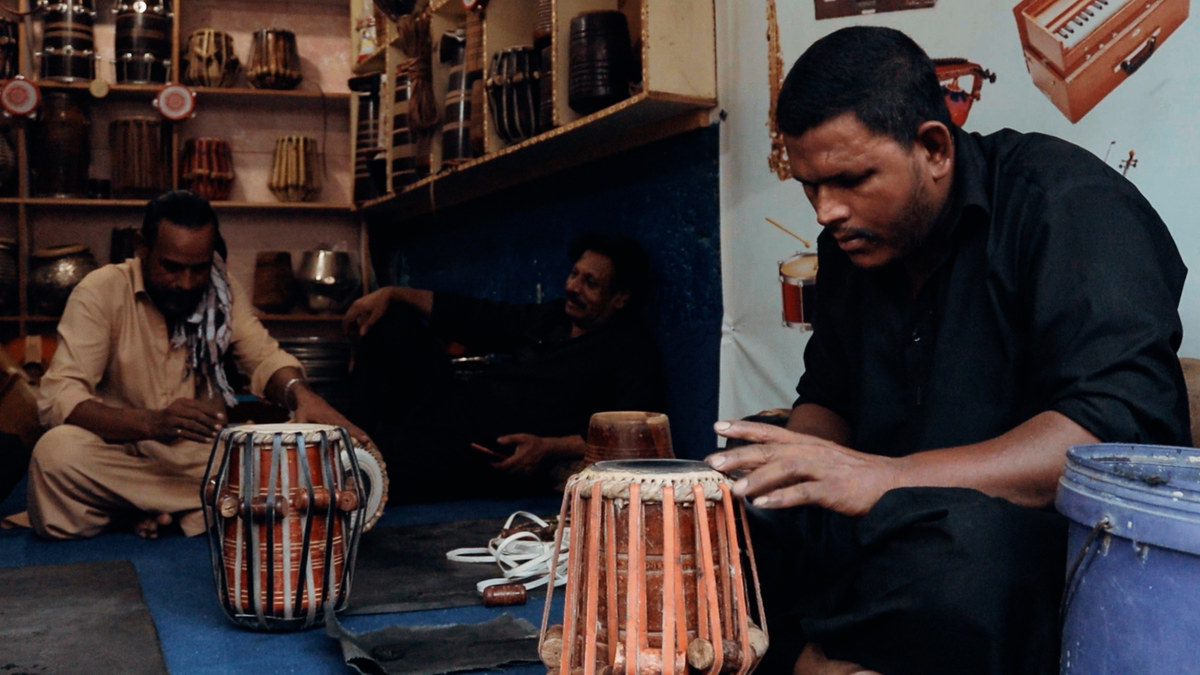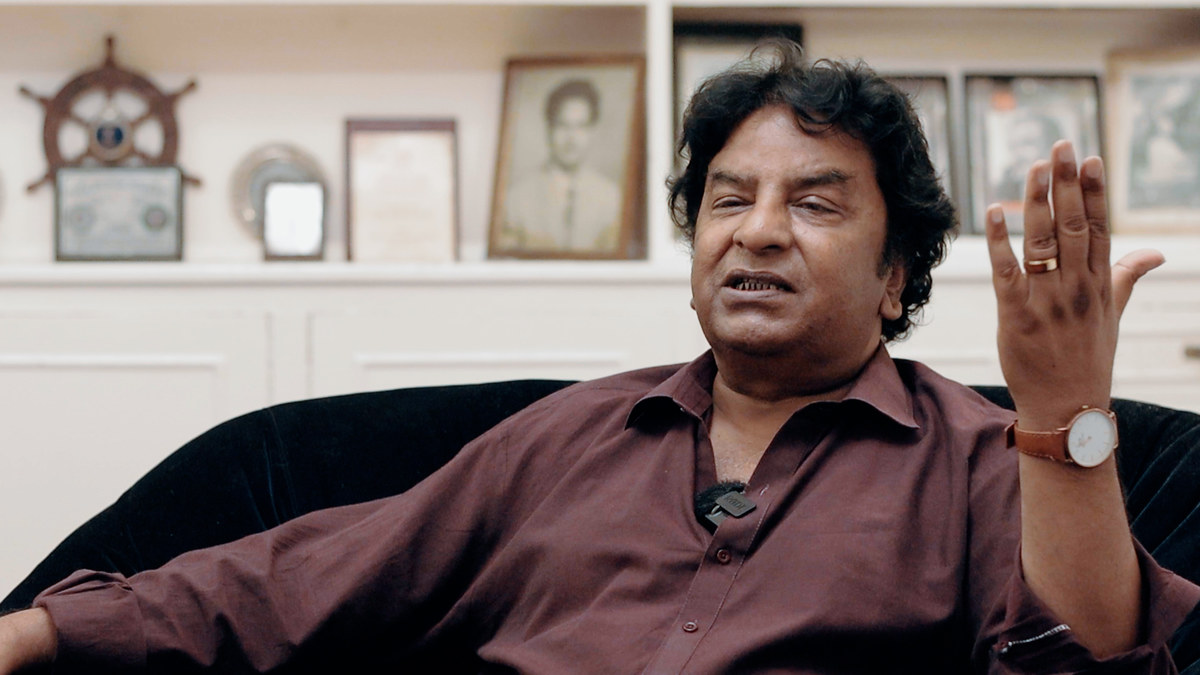RAWALPINDI: Arif Hussain, a 65-year-old tabla player, sits in his modest shop in Rawalpindi’s Bagh Sardaran neighborhood, lamenting how his business is struggling to survive as the demand for the region’s once-iconic musical instrument declines.
Despite the central role these hand-played drums have had in South Asia’s classical music, tabla’s resonant tones are fading from Pakistan’s modern soundscapes.
Visitors to this old market in Rawalpindi can still hear its rhythmic beats, though the echoes are no longer as widespread as they once were in royal Subcontinental palaces and bustling bazaars.
The situation was not entirely desperate while Pakistan’s film industry was producing motion pictures that relied on traditional themes and melodies, but the rise of contemporary music has changed that, with fewer people wanting to master the intricate art of playing this percussion instrument.

Workers at Arif Hussain's modest shop in Rawalpindi’s Bagh Sardaran neighborhood make tablas (hand drums) on August 1, 2024. (AN Photo)
“Since 1984, I have stopped playing tabla,” Hussain told Arab News during a conversation this week. “There is no work for us anymore. Sometimes if any young people come, I teach them to play tabla. With the decline of the film industry, our work also deteriorated.”
For decades, tabla was a dominant presence in Pakistan’s musical landscape, particularly when ghazals were the entertainment of choice on television and at private gatherings, capturing the grandeur of the Urdu poetic tradition.
This cultural preference endured even as Western influences began to seep into the music scene.
However, as concerts gained popularity, younger artists gravitated toward guitars and drums, embracing more contemporary genres.
As classical singer Babar Niazi pointed out, this was not just the fading of a particular musical instrument but a reflection of a broader cultural shift.
“Back in the era of ghazal, you could not imagine a performance without tabla,” he said. “But since ghazal has declined, tabla isn’t played as much as it used to be.”

Classical singer Babar Niazi speaks during an interview with Arab News on August 1, 2024 in Islamabad, Pakistan. (AN Photo)
“Many of our ancient instruments are fading away, and with the rise of electronic music, the soul and feel of these traditional instruments are getting lost over time,” he added.
Niazi, who is the son of legendary folk singer Tufail Niazi, noted that modern music is about catchy beats and electronic vibes, which makes it instantly appealing to the younger generation.
A contemporary singer, Alamdar Khan, agreed with him, saying it was hard to compare the old and new styles of music.
“Sometimes retro comes back in fashion, but it’s always about the tempo, the sub-bass, and the super bass,” he noted. “It’s always about what sounds good to the ear and what the public and the masses want.”
Music composer Naveed Anwar explained the situation on the basis of generational gap.

Music composer Naveed Anwar composes a tune at his recording studio in Islamabad, Pakistan on August 1, 2024. (AN Photo)
“The person who plays guitar or drums looks very active and gives a dashing feel,” he said. “This is the reason that today’s generation does not like tabla players or eastern music.”
“Also, tabla is a very difficult instrument to learn,” he continued. “People do not want to work that hard on this approach.”
Young artists believe tabla can still be a vital instrument if fusion music is given a chance.
Coke Studio, one of the most influential and widely followed music platforms in Pakistan, heavily relies on this trend, blending various musical genres like pop, rock, hip-hop and electronic with Pakistani folk and classical music.
“The idea that Nusrat Fateh Ali Khan also had when he collaborated with [Grammy-nominated composer] Michael Brooks was to make it [eastern classical music] relevant for the newer generation,” Saboohi Sarshar, a contemporary singer, told Arab News.
“I think that is something that tabla players and people who make tablas have missed out on, which is how to evolve it for the new generation,” she added.












